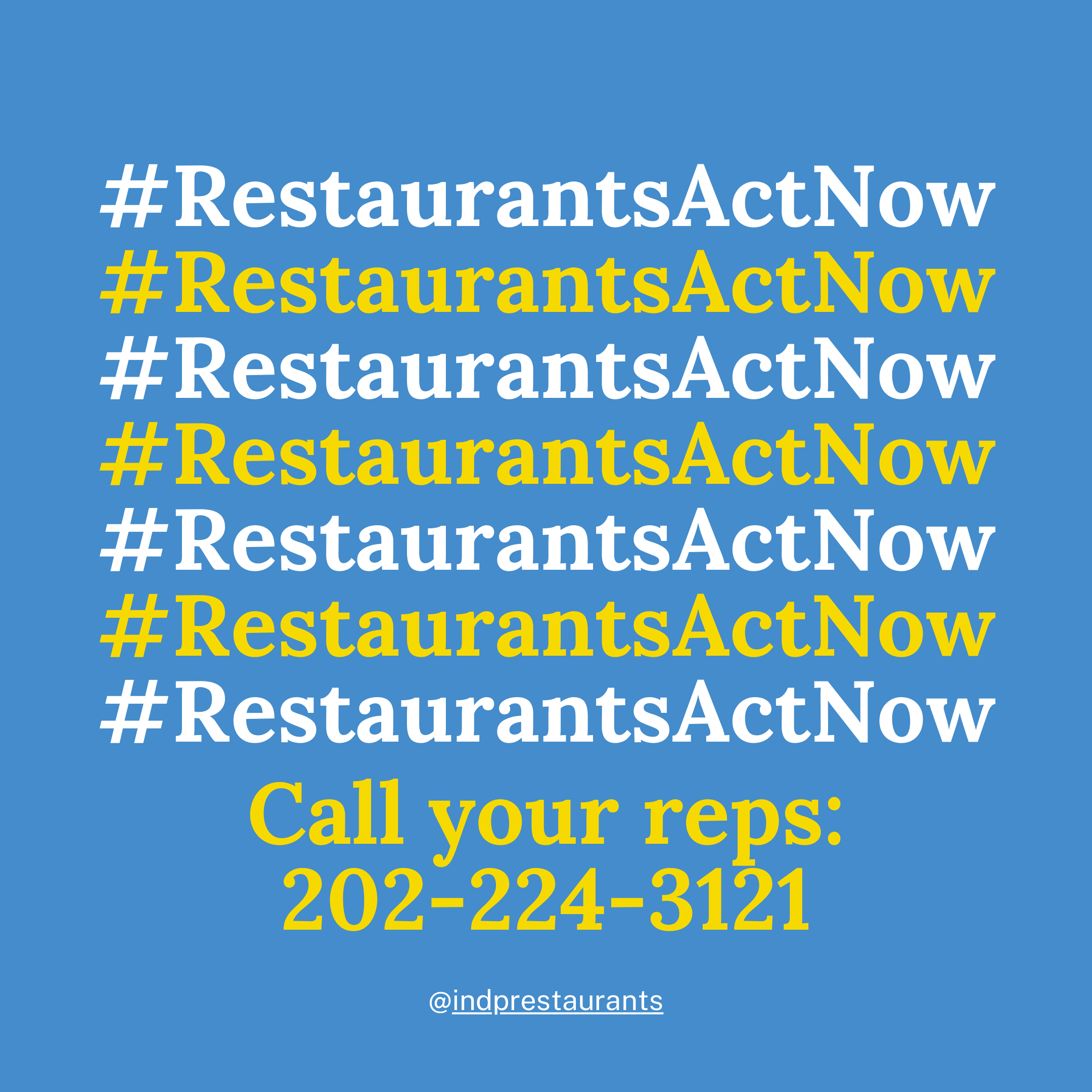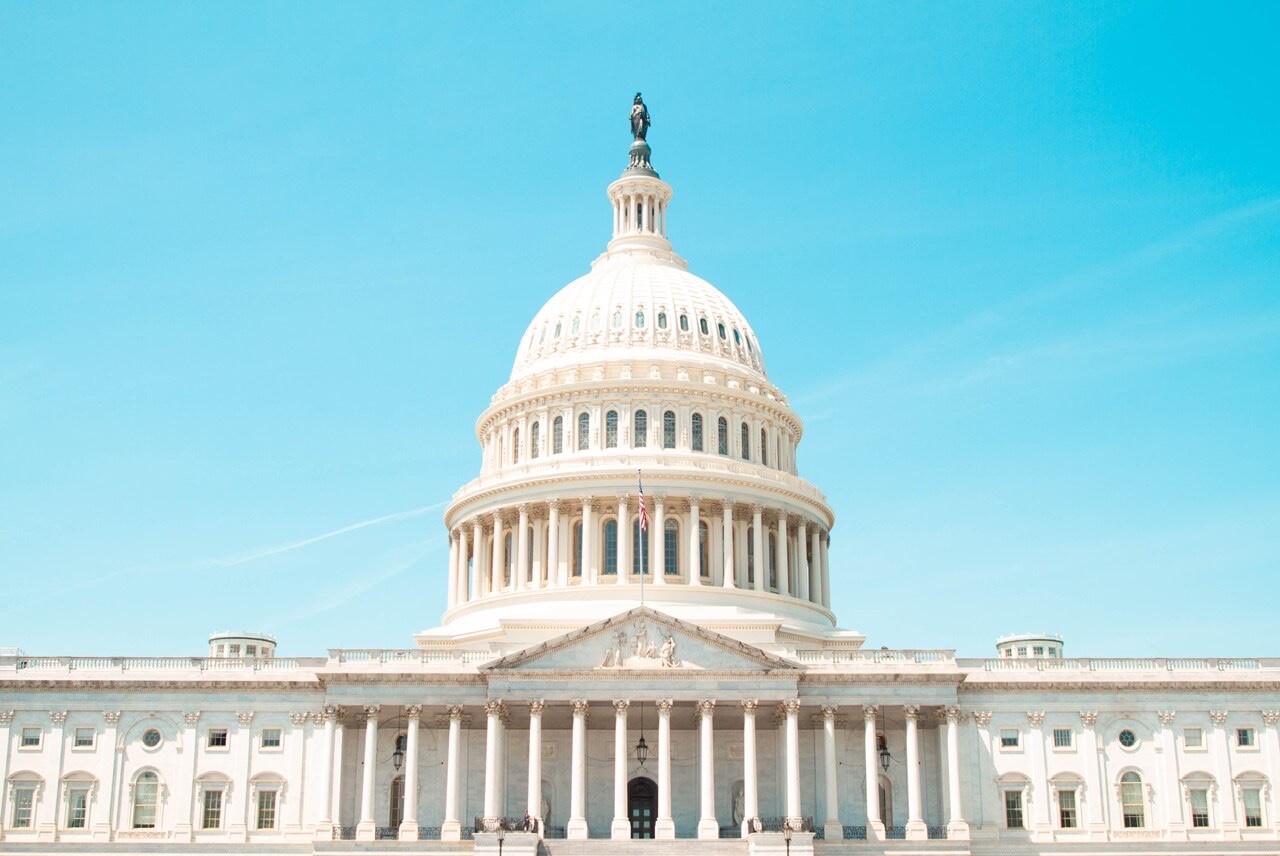On the Menu for 2021: The RESTAURANTS Act
by David Klemt
Much like restaurants themselves, the RESTAURANTS Act has faced multiple starts and stops.
The bill received huge bipartisan support in 2020, landing dozens upon dozens of co-sponsors.
However, that widespread support didn’t materialize into any actual progress—the bill was never signed into law. That must change now.
A Long Road
It’s February 2021. The House and Senate must work together to provide the targeted relief of the Real Economic Support That Acknowledges Unique Restaurant Assistance Needed to Survive (RESTAURANTS) Act.
The RESTAURANTS Act was first introduced to the House of Representatives on June 15, 2020. The bill was eventually included in the revised Heroes Act, which was passed by the House on October 1, 2020 on a vote of 214 to 207.
Unfortunately, that bill was “dead on arrival” and didn’t receive a vote on the Senate floor. A $900 billion stimulus package was negotiated in December of 2020 but the RESTAURANTS Act wasn’t included in it.
It has been more than long enough—it’s beyond time for action.
Where are We Now?
Throughout all of this, from inception to current status, the Independent Restaurant Coalition (IRC) has never faltered in their campaign to ensure this industry receives the targeted relief it so desperately needs.
It’s wise given how the number of times we’ve been let down by our elected officials to be guarded and cautiously optimistic about the RESTAURANTS Act finally being signed into law this month.
On February 5, Senators Roger Wicker (R-MS) and Kyrsten Sinema (D-AZ), and Representatives Earl Blumenauer (D-OR) and Brian Fitzpatrick (R-PA) formally (re)introduced the RESTAURANTS Act to the 117th Congress.
What’s in the Bill?
In its current form, the RESTAURANTS Act:
- establishes a $120 billion relief fund for foodservice and drinking establishments;
- makes groups that operate up to 20 units eligible for relief from that fund;
- provides operators access to grants of up to $10 million for eligible expenses; and
- makes the grants retroactive to February 15, 2020 and ends them eight months after the legislation is signed into law.
New provisions in the February 2021 RESTAURANTS Act include:
- updates to the award calculation based on annual loss from calendar year 2020 instead of quarterly;
- grant eligibility for new restaurants that opened after January 1, 2020;
- paid sick leave as an eligible expense for employees, with a bonus amount to cover the cost of voluntarily providing ten days of sick leave to employees;
- providing the Department of the Treasury the discretion to help reduce waste, fraud, and abuse;
- imposing reporting obligations on the Department of the Treasury to share who gets loans and demographic information about recipients; and
- ensuring that restaurants can use both the Employee Retention Tax Credit and the RESTAURANTS Act grant program, provided they are not used for the same expenses.
What’s Next?
We must all act to give the RESTAURANTS Act the best chance of becoming law. We have been patient for long enough.
We must let our representatives know we expect them to pledge their support for this bill formally.
The IRC provides several methods for ensuring our representatives understand they need to co-sponsor and pass the RESTAURANTS Act:
- Email your representatives and ask them for their co-sponsorship.
- Call your representatives directly and tell them why restaurants and bars need the RESTAURANTS Act to be voted on, passed, and signed into law. This is the number to dial: (202) 224-3121. The IRC has provided talking points here.
- Share the graphic below on your social channels and encourage your followers to also contact their representatives and ask them to co-sponsor the RESTAURANTS Act. Use the following caption when posting: It’s official: the RESTAURANTS Act of 2021 is on the menu in both chambers of Congress. Call your representatives today and tell them that independent restaurants, bars, and workers can’t wait any longer for direct relief: 202-224-3121 #SaveRestaurants

All of that will take less than 20 minutes. That’s not a lot of time to help finally get this industry the support and relief it needs.
The RESTAURANTS Act is needed to prevent more permanent restaurant and bar closures, and to revitalize the industry. The road to recovery is a long one and getting this bill signed into law is a major step forward.
Please email and call your representatives. Please share the post and caption above on your social media. Please help save the restaurants, bars, and millions of people they employ.
Image:



